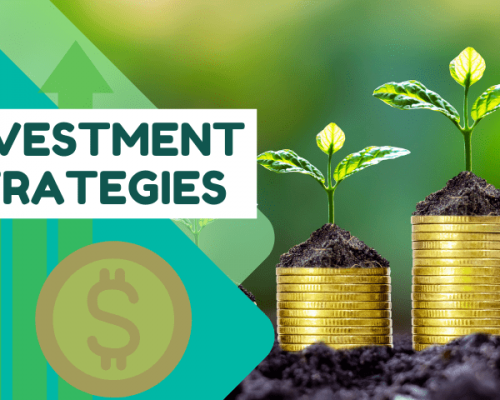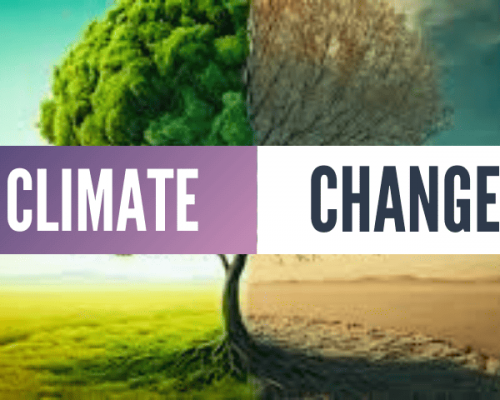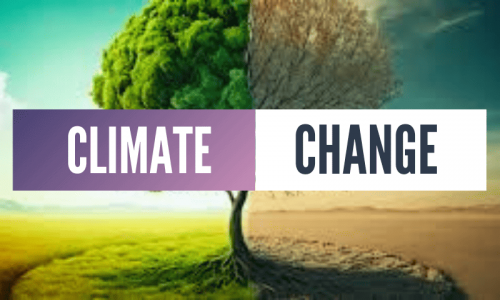Climate change is a pressing global issue characterized by changes in average weather conditions that persist over long periods of time. This article explores the scientific foundations of climate change, its impacts on our environment and societies, and the strategies that can mitigate its effects.
The Science of Climate Change
Climate change refers to significant alterations in the measurements of climate lasting for an extended period of time. This covers variations spanning decades or longer in temperature, precipitation, and wind patterns. The primary cause of recent global climate change is human activity, especially the emission of greenhouse gases (GHGs) like carbon dioxide, methane, and nitrous oxide.
The science behind climate change is rooted in the greenhouse effect, which is a natural process that warms the Earth’s surface. Sunlight reaches the Earth’s atmosphere – some of this energy is reflected back to space and the rest is absorbed and re-radiated as heat. Greenhouse gases in the atmosphere trap some of this heat, and the rest escapes into space. The problem arises when human activities, particularly fossil fuel burning and deforestation, increase concentrations of these gases, leading to more heat being trapped and thus warming the Earth more than usual, disrupting climate systems.
This understanding comes from various data sources including ice cores, tree rings, ocean sediments, coral reefs, and satellites. Advanced models and computational techniques allow scientists to predict future climate conditions. These predictions consistently show that if GHG emissions continue unchecked, the Earth’s climate will continue to warm, causing widespread and severe impacts.
Impacts of Climate Change
The impacts of climate change are extensive and multifaceted, affecting virtually every aspect of the natural world and human society. The most immediate and apparent effects are increases in global temperatures. Over the past few decades, the planet has experienced unprecedented warming, with the last seven years being the warmest on record. This warming has numerous consequences.
One major impact is the rise in sea levels, which results from the melting of ice sheets and glaciers and the expansion of seawater as it warms. Rising sea levels threaten coastal communities with increased flooding, erosion, and saltwater intrusion into freshwater reserves. Extreme weather events, such as hurricanes, droughts, and heatwaves, have become more frequent and severe, leading to devastating effects on communities, economies, and ecosystems.
The environmental ramifications are equally severe, including habitat destruction, loss of biodiversity, and shifts in wildlife populations and migratory patterns. These changes not only threaten species with extinction but also disrupt agricultural practices, thereby threatening food security. Human health is also at risk, as climate change contributes to the spread of diseases, increases in heat-related illnesses, and poorer air quality.
The impacts of climate change are both far-reaching and profound. As global temperatures rise, their effects ripple across ecosystems, economies, and communities:
- Environmental and Ecological Disruptions: Increasing temperatures and shifting precipitation patterns affect the distribution of freshwater resources and the productivity of ecosystems. Warmer waters and ocean acidification damage coral reefs and threaten marine biodiversity, while on land, changing conditions disrupt the natural habitats of numerous species, pushing many towards extinction.
- Sea Level Rise: The thermal expansion of seawater combined with the melting of glaciers and ice sheets contributes to rising sea levels, which exacerbate coastal erosion, increase flooding, and lead to more frequent and severe storm surge impacts. Coastal and island communities are particularly vulnerable, facing threats to their infrastructure, economies, and even territorial integrity.
- Extreme Weather Events: There is increasing evidence that climate change is making weather patterns more extreme and unpredictable. This includes more intense and frequent hurricanes, droughts, heatwaves, and heavy rainfall events. Such conditions not only cause immediate human suffering and economic damage but also create long-term societal stressors, including migration and conflicts over diminishing resources.
- Human Health Risks: The health impacts of climate change are increasingly recognized. Higher temperatures can lead to heat stress and worsen air quality, exacerbating respiratory and cardiovascular diseases. Changes in climate also expand the ranges of disease-carrying insects such as mosquitoes, thereby broadening the spread of diseases like malaria and dengue fever.
- Impact on Agriculture: Climate change poses a significant risk to global food security. Changes in temperature and precipitation patterns, along with increased incidences of pests and diseases, affect crop yields and livestock productivity. These changes threaten the livelihoods of rural communities and have the potential to cause food prices to fluctuate, affecting global markets and economic stability.
Mitigation Strategies
Mitigating climate change involves strategies aimed at reducing greenhouse gas emissions and enhancing the sinks that absorb these gases. A multifaceted approach is required, combining technology, policy, and individual action to effectively address the issue.
One major strategy is the transition to renewable energy sources. Solar, wind, and hydroelectric power systems emit little to no greenhouse gases, making them key to reducing global dependence on fossil fuels. Enhancing energy efficiency in buildings, vehicles, and industries is also crucial. Technologies like LED lighting, high-efficiency appliances, and electric vehicles can substantially reduce energy consumption and emissions.
Policy initiatives play a critical role. Governments can influence behaviors through regulations and incentives. Carbon pricing, whether through a carbon tax or a cap-and-trade system, has been particularly effective by internalizing the cost of carbon emissions. Additionally, policies promoting energy efficiency standards, supporting renewable energy projects, and preserving natural carbon sinks like forests are vital.
Individual actions also have a significant impact. Choices in diet, transportation, and consumption can all reduce one’s carbon footprint. Eating less meat, using public transport, and reducing waste by recycling and composting can collectively make a substantial difference.
Addressing climate change requires a comprehensive and global response, focusing on reducing GHG emissions and enhancing natural processes that remove carbon from the atmosphere. The strategies are as varied as the challenges they aim to meet:
- Transition to Renewable Energy: Phasing out fossil fuels and increasing the share of renewable energies like solar, wind, and hydroelectric power in the global energy mix is critical. This shift not only reduces emissions but also diversifies energy sources, enhancing energy security.
- Energy Efficiency: Improving energy efficiency in industrial processes, buildings, and transportation systems can significantly reduce energy demand and emissions. Innovations such as LED lighting, energy-efficient appliances, and advanced building materials play a crucial role in these efforts.
- Sustainable Agriculture and Forestry Practices: Promoting agricultural practices that enhance soil carbon storage and adopting forestry practices that increase biomass can turn these sectors into net carbon sinks, rather than sources. Practices such as reforestation, afforestation, and sustainable land management are vital.
- Policy and Legislation: Effective climate policy is essential for setting the legal and economic framework necessary for mitigation. This includes implementing carbon pricing mechanisms, subsidizing renewable energy technologies, and setting regulatory standards for emissions.
- Individual and Community Actions: Individual choices in diet, transportation, and consumption can collectively lead to significant reductions in GHG emissions. Community-driven initiatives can foster local resilience to climate impacts and encourage sustainable practices at the grassroots level.
In conclusion, understanding the science behind climate change, recognizing its profound impacts, and implementing a range of mitigation strategies are all essential steps in addressing the global challenge of climate change. The collaborative effort of nations, communities, and individuals is crucial to steering our planet towards a more sustainable future. Tackling climate change is a complex challenge that requires coordinated global action across multiple sectors. By advancing our understanding of climate science, recognizing the broad impacts, and diligently implementing mitigation strategies, we can work towards a sustainable future for all.








